
About us Guidelines on Peer-learning
The BeyondScale roadmap on peer‐learning and HEI's take‐aways from peer‐learning experiences
Peer-learning is a way for partners to learn from each other effectively. At a time when the university resources are limited and demands upon the staff are increasing, it can be beneficial internal as well as external stakeholders of an HEI to learn from each other.
For peer‐learning to take place it is important to know who the “peers or buddies” are. For peer‐ learning to be achieved within the BeyondScale project a buddy system was created. The buddy system included internal HEI partners for the inbound projects, external for the outbound projects, and a system that involved project partners, associate partners as well as mentors.
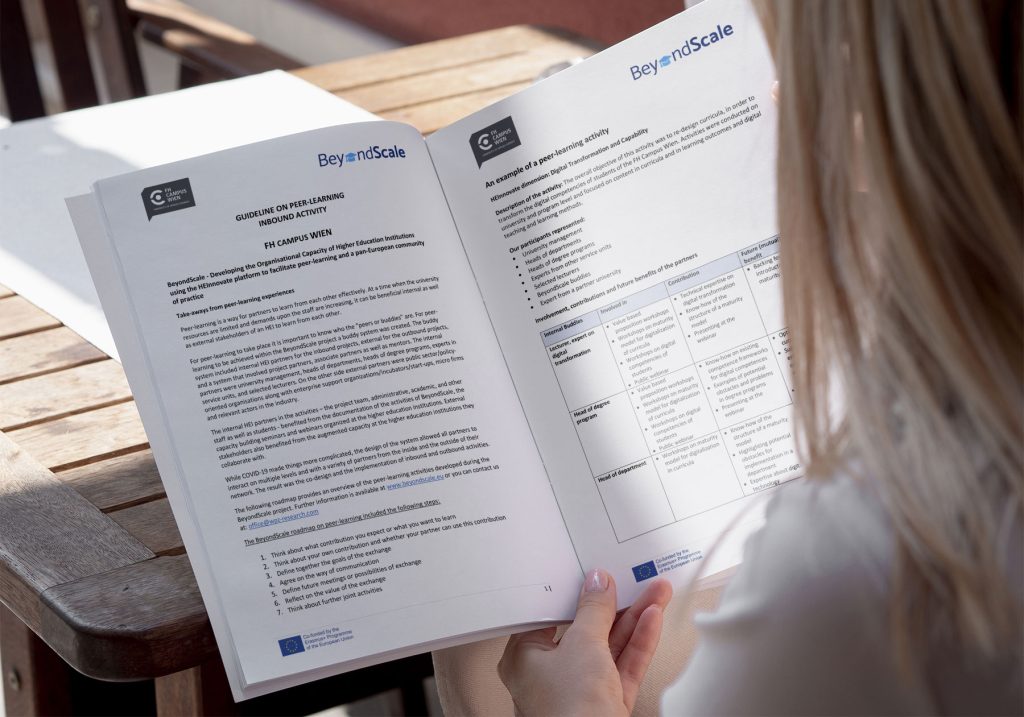
Inbound peer-learning
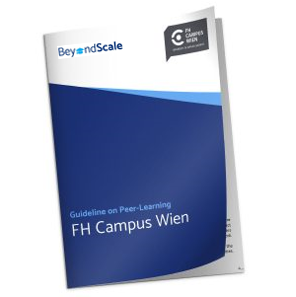
Guideline by FH Campus Wien
The overall objective of this activity was to re-design curricula, in order to
transform the digital competencies of students of the FH Campus Wien. Activities were conducted on
university and program level and focused on content in curricula and in learning outcomes and digital
teaching and learning methods.
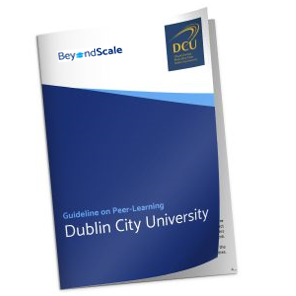
Guideline by Dublin City University
Fostering ICE (Innovation, Creativity and Entrepreneurship) activities as part of the student
curriculum and co‐curricular experience. The creation of Open Educational Resources in Creativity,
Innovation & Entrepreneurship. The provision of prototyping support and the creation of a Maker‐
Space in the new Entrepreneurship Hub where students could develop their entrepreneurial ideas
and create prototypes of the products and/or services that they wish to create.
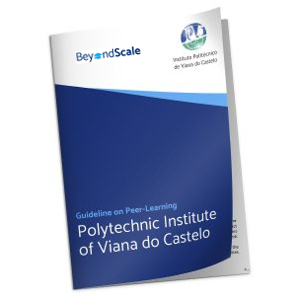
Guideline by Polytechnic Institute of Viana do Castelo
Opportunities and Development of entrepreneurship teaching and learning on social innovation with the “Inclusive School project”.
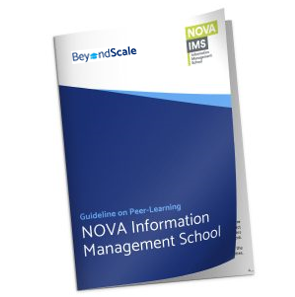
Guideline by NOVA Information Management School
Review the state of the art of the digital context on NOVA IMS programs as well as digital tools and strategies used in the learning process.
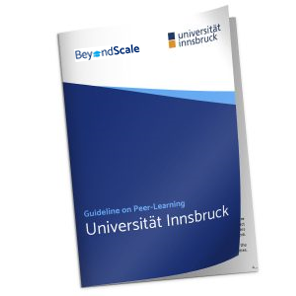
Guideline by Universität Innsbruck
The main goal of the UIBK inbound activity within BeyondScale was to
develop offerings for Entrepreneurial Learning, which are tailored for the specific desires of the
disciplines SSHA (Social Sciences, Humanities & Arts). The inbound workshop served to collect the necessary information for this purpose in the forefront by interviewing people from these disciplines
SSHA: students, alumni, lecturers and other “connoisseurs”.
Outbound peer-learning
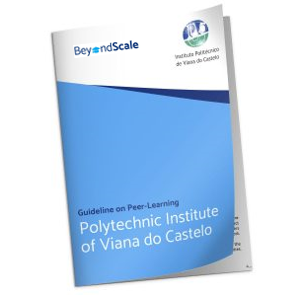
Guideline by Polytechnic Institute of Viana do Castelo
The activity aims to expand IPVCs´ social entrepreneurship ecosystem, collaboration, and knowledge exchange with NGOs. The activity also intends to identify the partners needs in order to promote the development of service‐learning projects with teachers and students.
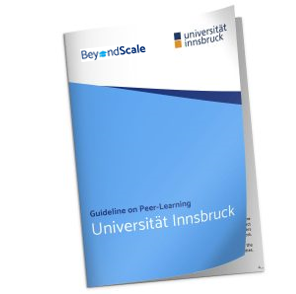
Guideline by Universität Innsbruck
The main goals of the UIBK outbound activity was to get an insight about the needs of the NGO / charity / non‐profit / social enterprise sector regarding entrepreneurial mindset and innovation. This was achieved through seminars, webinars and workshops as well as development of ideas & impulses how to improve this interaction.
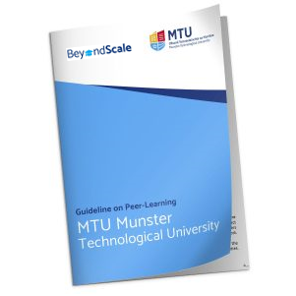
Guideline by Munster Technological University
The expansion of MTU’s entrepreneurship ecosystem. While MTU’s Entrepreneurship ecosystem has been well linked to various external stakeholders, their views are less understood. The value of external stakeholders is crucial for the continued success of MTU’s strategy to support for entrepreneurship and innovation.
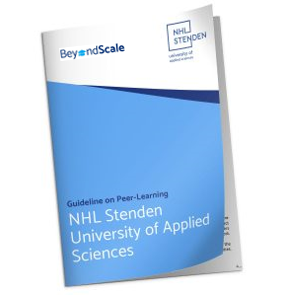
Guideline by NHL Stenden University of Applied Sciences
Determination of the current situation regarding the way that NHL Stenden supports entrepreneurship within its organization and to aim to develop a better insight in the current educational initiatives and other activities to support our students’ entrepreneurship.
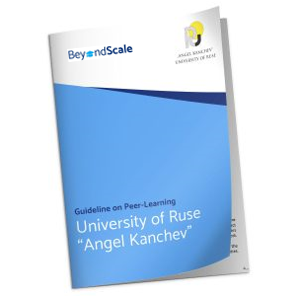
Guideline by University of Ruse "Angel Kanchev"
Two workshops were organised by the University of Ruse to analyze how the university could collaborate better with local industry partners in applied research projects in the field of knowledge transfer. In this activity we focused on the HEInnovate dimension of “Knowledge exchange and collaboration“. The HEInnovate self‐reflection statements provides a good understanding about the key issues to consider when encouraging the responsiveness of the University of Ruse to the needs of business and the outside world in general.


